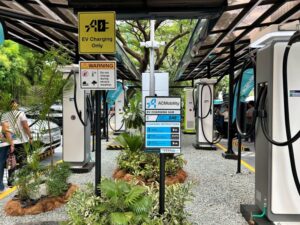
In a recent report from the United Nations Trade and Development agency, a significant gap has been highlighted between the current production levels of essential minerals and the rising demand necessitated by global climate goals. According to the agency, minerals such as lithium, cobalt, and nickel, which are crucial for manufacturing clean energy technologies like solar panels, wind turbines, and electric car batteries, are being produced at levels insufficient to meet the needs required to limit global warming to 1.5°C as per the Paris Agreement.
Escalating Demand Versus Inadequate Supply
The study projects a staggering increase in demand for these minerals, with lithium demand expected to rise by more than 1,500 percent by 2050. Similarly, substantial increases are anticipated for other minerals, reflecting the urgent need for an upscale in mining and production activities globally. However, current investments in the mining sector are not keeping pace with this surging demand, posing a significant challenge to achieving net-zero emissions targets.
Investment Needs and Global Opportunities
To meet the ambitious goal of net-zero emissions by 2030, the UN report outlines the necessity for substantial expansion in the mining sector. Specifically, it estimates the need for 80 new copper mines, 70 new lithium mines, 70 nickel mines, and 30 cobalt mines. The financial implications are considerable, with investments between 360 billion to 450 billion euros required from 2022 to 2030.
Potential for Developing Economies
The report emphasizes the opportunities this expanding demand creates for many developing economies, particularly in Africa, which holds over a fifth of the global reserves of a dozen essential metals. However, the UN also calls on these countries to increase the local value added of their mining operations to ensure more substantial economic benefits. The experience of the Democratic Republic of Congo, which has significantly increased the price it receives for cobalt by refining it locally, serves as a positive example of how value addition can enhance economic returns from mineral resources.
The Call for Action
The UN underscores the need for an accelerated effort in developing mining infrastructure and technology to harness these critical minerals adequately. It also highlights the importance of sustainable mining practices to ensure that the increase in mining activities does not lead to adverse environmental or social impacts.
Global Collaboration and Innovation
For the world to meet its climate objectives and transition effectively to clean energy, a collaborative global effort involving innovation, investment, and strategic planning is essential. The report calls for international cooperation to ensure that the necessary resources are mobilized and that developing countries can benefit equitably from the clean energy transition.





















Comments are closed for this article!